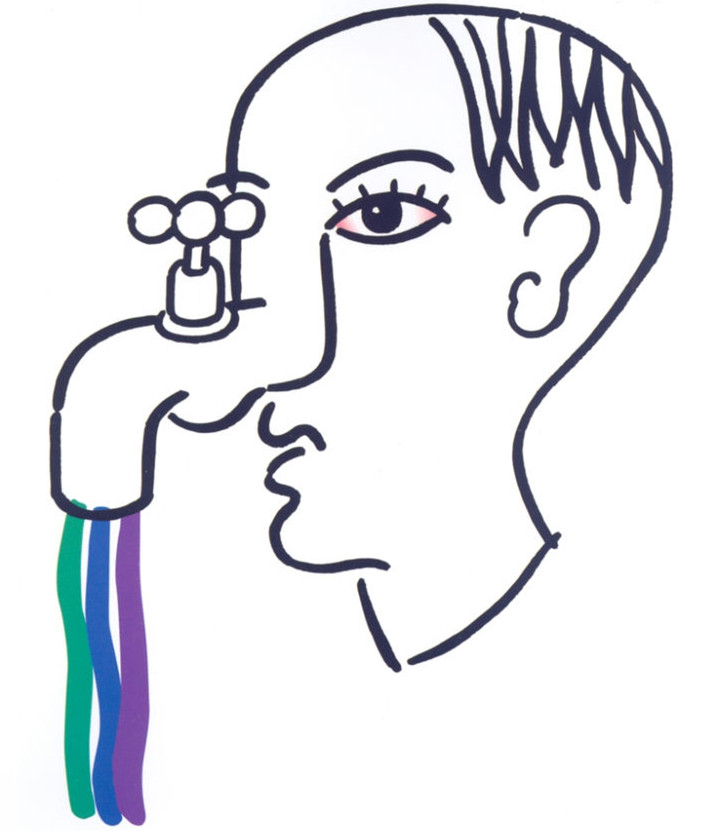They say that the nose knows. But it still gets its marching orders from the brain — at least when it comes to the lungs. Got that? Nose to brain to lungs. Because a new study shows that when people with asthma think they’re smelling something noxious, their airways become inflamed — even when the odor is harmless. The finding is in the Journal of Psychosomatic Research.
他們說鼻子能夠知曉人的一些事情。但歸根到底,鼻子是從大腦獲取的命令——至少對于肺來說是這樣的。明白了嗎?鼻腦肺,這是個相互關聯的系統。一項新的研究表明:得哮喘的人總是覺得他們呼吸的空氣是有害的,于是他們的呼吸道開始發炎——即使他們呼吸的空氣是無害的。該發現發表在《身心研究學》雜志中。
Asthma attacks can be triggered by pollen, dust, harsh chemicals or scents. These environmental annoyances constrict the airways in the lung, making breathing difficult.
花粉、灰塵、刺激性化學物質或氣味可引發哮喘。這些環境因素使得肺部呼吸道收縮,從而導致呼吸困難。

In this study, researchers wanted to see whether an individual’s assumptions have any influence over this breathtaking series of events. So they exposed 17 asthma sufferers to a benign chemical that smells like roses for 15 minutes. Nine subjects were told the fragrance was a potential irritant, the other eight that it would be therapeutic.
在該研究中,研究人員想了解人的臆想是否會對這一系列的驚人事件產生任何影響。因此,他們將17位哮喘病患者暴露在玫瑰味的無害化學氣體中15分鐘。其中9人被告知該氣體含有潛在刺激物,而其余8人則被告知該氣體具有治療哮喘的作用。
The results were as plain as the nose on your face: subjects who expected an irritant experienced inflammation. And those who were primed to be soothed had no adverse reactions — even if they were normally bothered by perfumes.
結果再清晰不過了:那些認為該氣體含有刺激物的人患上了炎癥,而那些認為該氣體有治療作用的人反而沒有感到不適——即使他們同樣也聞著這一氣體。
The results suggest that a rose by any other name would smell as sweet. Or be as irritating as you expect it will.
研究表明:易名玫瑰,聞著香與不香就看你是怎么想的了。











